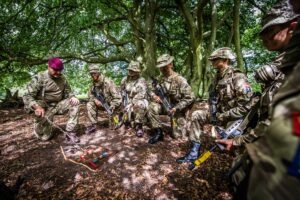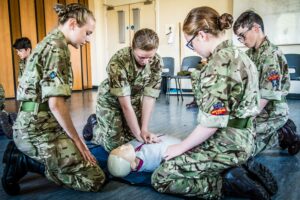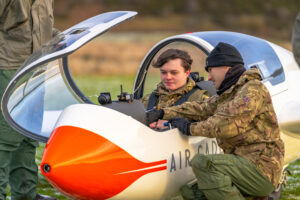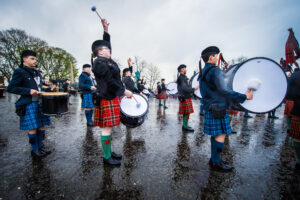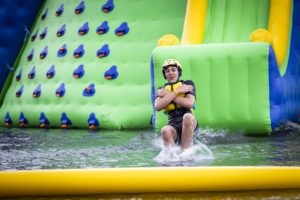
It’s exam season once again and we at Lowland RFCA want to wish the very best of luck to all the Cadets who will be working hard to gain valuable new qualifications.
We know that exams can be daunting, which is why we’ve put together a short Survival Guide to help keep those pre-exam jitters at bay.
Cadets benefit from a vast array of training activities that help them develop the ideal skill set for getting through a busy and stressful exam period. These helpful qualities can include:
Planning Ahead: As the old saying goes, if you fail to prepare, you prepare to fail. Planning is an essential element of Cadet activities, whether it’s developing strategies during a fieldcraft weekend or prepping kit for a Duke of Edinburgh’s Award expedition. Even taking the simple step of setting out a revision timetable can work wonders for beating exam stress.
Keeping Calm under Pressure: Cadets face challenges that better refine their ability to deal with high-pressure situations and take decisive action when needed, such as administering First Aid or leading teams on outdoor survival exercises. When it comes to a difficult exam question or a challenging practical assessment, just remember to take a breath and focus on the task in hand.
Analytical Skills: Learning how to navigate a boat or a glider or how to assess dangers while training in the field provides Cadets with analytical abilities that are highly transferable.The ability to balance the big picture with the details is a real game-changer when facing challenging assessments. Always remember: read or listen to your exam questions carefully, and make sure you understand exactly what your examiner is looking for in your answer by identifying the key words.
Teamwork: While the majority of exams are taken individually, it’s always worth remembering the importance of asking for help when you need it. Cadets rely heavily on teamwork during their training, playing on each team member’s strengths and talents to get the job done and earn their qualifications, so if something doesn’t make sense or you feel the work is getting on top of you, talk to someone who you feel can help you: a friend, a teacher, a parent or a Cadet Force Adult Volunteer.
Sense of Fun and Adventure: Cadets work hard but they know how to have fun and make the most of their learning opportunities as well. Finding a way to incorporate some fun into your preparation, such as some non-distracting background music, can really help keep the nerves under control without causing too much distraction. It’s also worth making celebration plans for when the exams are over, as having something fun to look forward to can be a powerful motivator in stressful situations.
